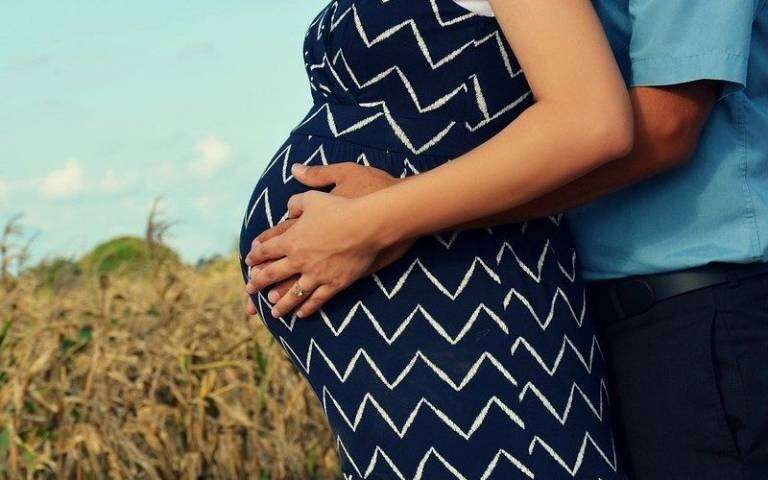Credit: Becalee/28 images;CC BY 2.0
There were nearly twice as many unplanned pregnancies during the first lockdown compared to before, finds a major study led by researchers from UCL and University College London Hospital.
The study, published today in BMJ Sexual and Reproductive Health, is the first to assess changes in women's self-reported access to contraception as a consequence of the COVID-19 pandemic in the UK.
The researchers analyzed data from 9,784 women, who are all participants of the ongoing Contraception and Pregnancy Study (CAP-COVID) based at UCL and UCLH. Of the 9,784 women, 4,114 conceived pre-lockdown and 5,670 conceived post-lockdown.
Overall, the research team found women were nine times more likely to have difficulties in accessing contraception during the first lockdown leading to a near doubling in the proportion of unplanned pregnancies from 1.3% pre-lockdown to 2.1% post-lockdown The proportion of women reporting difficulties accessing contraception rose from 0.6% pre-lockdown to 6.5% post-lockdown.
Senior author, Dr. Jennifer Hall (UCL Institute for Women's Health) said: "During the COVID-19 pandemic, many countries, including the UK, recognized the need for continuing contraception provision and implemented new practices and policies to deliver this.
"The UK saw a significant shift to telemedicine along with remote prescription for progestogen-only pill and combined oral contraceptive pill for up to a year compared to the usual 3–6 months, and many maternity services also worked to improve the postnatal contraception provision available in hospital.
"However, we found that despite the introduction of new policies and practices by contraception and abortion service providers during the first lockdown, women continued to report ongoing difficulties in accessing contraception leading to a significant rise in the proportion of unplanned pregnancies."
The authors say the data is nationally representative but they may not have captured the women who were not planning to continue their pregnancy and therefore the percentage of unplanned pregnancies reported in the study may be an under-estimate.
First author, Dr. Neerujah Balachandren (Reproductive Medicine Unit at UCLH) added: "Prior research has pointed to several factors which may explain why it was harder to access to contraception during the COVID-19 pandemic.
"These include a lack of clarity about the legitimacy of trying to access Sexual and Reproductive Health services (SRH) during a pandemic, uncertainty about which SRH services are still available, limited GP appointments, challenges to contraceptive prescribing and closure of usual points of access to free condoms within community settings."
The overall annual cost of unplanned pregnancies in England, including those ending in births or abortions, was estimated as £193 million in 2010 and the authors highlight that a rise in unplanned pregnancies will increase pressures on already stretched abortion and maternity services. In addition, data released earlier this month shows that there were 210,860 abortions reported in England and Wales in 2020; the highest since records began.
Unplanned births are also associated with negative social and economic outcomes for parents and for their children.
This study was supported by a grant from the Elizabeth Garrett Anderson Hospital Charity.
Participants were grouped based on whether they conceived before or after lockdown using their last menstrual period date (LMP), where available. Those with LMP before 1st April 2020 were classified as 'pre-lockdown' and those with LMP on/after the 1 April 2020 were classified as 'post-lockdown.'
Whilst the official date of the first UK lockdown was 23rd March, the study authors used 1st April to ensure that those in the post-lockdown group would have faced restrictions in the month that they conceived.
More information: Neerujah Balachandren et al, Impact of the SARS-CoV-2 pandemic on access to contraception and pregnancy intentions: a national prospective cohort study of the UK population, BMJ Sexual & Reproductive Health (2021). DOI: 10.1136/bmjsrh-2021-201164
Provided by University College London























